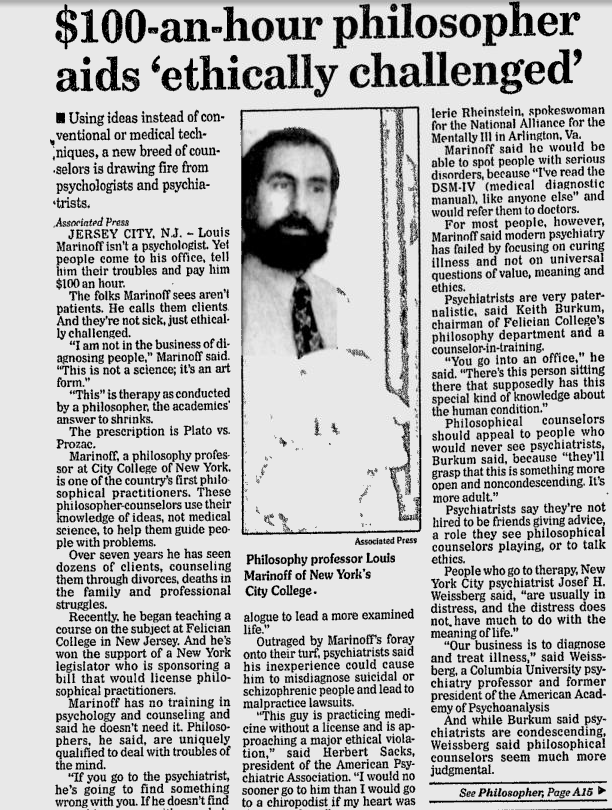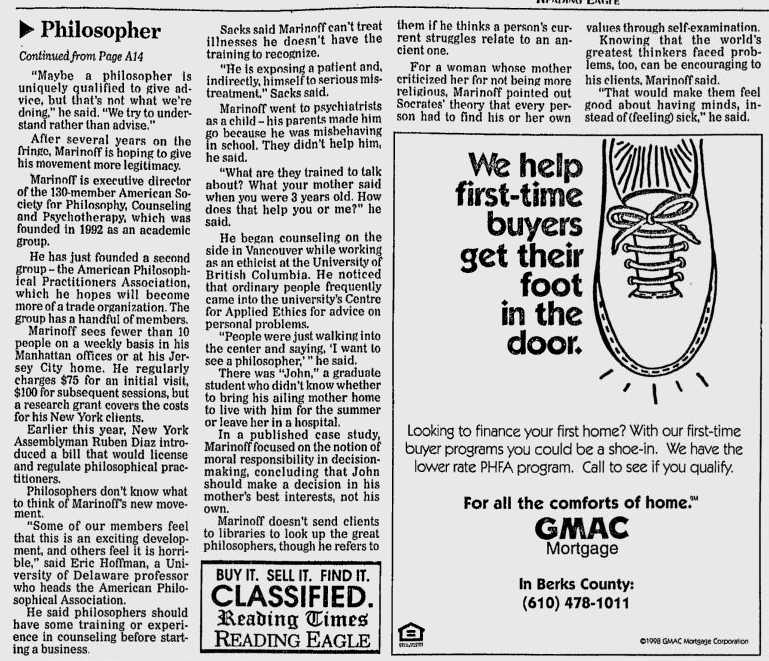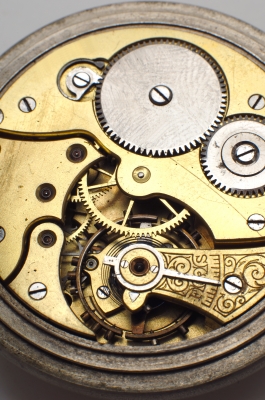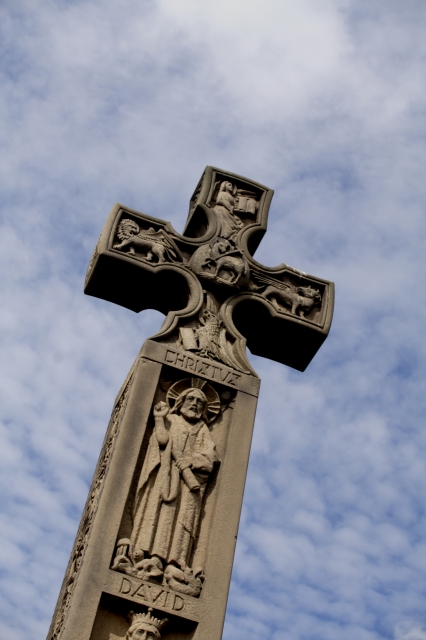Philosophy
Man sues parents for giving birth to him
The philosophy of anti-natalism has been around for a while. It’s the belief that reproduction is bad because it involves bringing someone into this world without their consent and dooming them to potential suffering.Mumbai businessman Raphael Samuel (aka Nihil Anand) has now taken this one step further by claiming that he’s going to sue his parents for giving birth to him without his consent.
His mother's response: "I must admire my son's temerity to want to take his parents to court knowing both of us are lawyers. And if Raphael could come up with a rational explanation as to how we could have sought his consent to be born, I will accept my fault."
Of course, Samuel hasn't yet found a lawyer willing to take his case. And he fully anticipates that the case will promptly be thrown out. But he's plowing ahead nevertheless.
More details: BBC News
Posted By: Alex - Wed Feb 13, 2019 -
Comments (3)
Category: Philosophy, Lawsuits, Birth Control
Louis Marinoff, Philosophical Counselor
Original article here.His Wikipedia page.
Still teaching.
Still counseling, via Skype.



Posted By: Paul - Thu Mar 30, 2017 -
Comments (1)
Category: Eccentrics, Education, New Age, Philosophy, 1990s
The Existentialist Hat
In 1948, the existentialist Parisian milliner Jean Barthet debuted the "existentialist hat" which was topped by a pair of floppy hands that were supposed to symbolize the hovering "hands of fate."For some reason, Barthet's hat didn't capture the popular imagination as a symbol of existentialist angst in the same way as, for instance, Edvard Munch's The Scream did.
However, Barthet did go on to have an extremely successful career. Wikipedia notes that he was a favorite hatmaker of Sophia Loren and Michael Jackson.

Newsweek - June 28, 1948

Des Moines Register - June 14, 1948
Posted By: Alex - Thu Sep 22, 2016 -
Comments (1)
Category: Philosophy, Headgear, 1940s
Plato’s cave allegory done in claymation
[via reality carnival]
Posted By: Alex - Sun Aug 11, 2013 -
Comments (3)
Category: Philosophy
Undercurrents
UNDERCURRENTS from Michael Fragstein on Vimeo.
"UNDERCURRENTS is based on a series of interviews collected by Tobias Hülswitt. He asked different people to explain him how the world works and they came up with the broadest variety of answers."
Many thanks to WU-vie Michael Fragstein, who is part of this project.
Posted By: Paul - Mon Nov 19, 2012 -
Comments (0)
Category: Philosophy, Surrealism, Reader Recommendation, Cartoons
Weird Science - Douglas Adams For The Win!

That prevailing view of the universe was thrown, literally, into chaos with the advent of quantum physics, where counter-intuitive results were commonplace, effects could appear to happen before causes (or even without causes) and true randomness abounded. In an effort to return to the saner world of "classical mechanics" many physicists sought to again ascribe the apparent randomness of quantum systems to ignorance, they declared that "hidden variables" currently unknown to science had secretly determined the results. Even Einstein, whose 1905 paper on the photoelectric effect had helped found the new physics was moved to say categorically that "God does not play dice!"
But who was right? In an effort to determine this, in 1964 the physicist John Bell performed a thought experiment whereby pairs of entangled particles (ones where a particular property of the pair is known but each particle's individual contribution is not) are measured simultaneously while a great distance apart from each other. In the classical view either the results would have been determined well in advance of the measurements, in which case they should correlate perfectly, or they are separately determined by the act of measurement, in which case they should not correlate at all. Bell showed with mathematical rigour that in one particular experiment any hidden variable theory should produce a correlation of < 0.5. This became known as the Bell Inequality. At the time there was no practical way to test Bell's hypothesis, and the earliest attempts in 1972 were inconclusive, but by the 1980s the technology had matured to the point that physicists could be very confident that Bell's Inequality had been violated, at its core the quantum universe really was truly and utterly random.
But how random? Consider the quantum equivalent of a coin-toss, one that is completely fair and - as we have discovered - completely random; clearly it is equally likely to end up in only one of two states, the quantum equivalent of "heads" or "tails". We could represent each result with either a 1 or a 0, so the amount of randomness of our quantum coin is said to be "1 bit". But quantum systems are not bound to act like coins, perhaps they are more like dice or roulette wheels, perhaps a quantum system is a random as a lottery draw with literally millions of possible outcomes. It was to answer this question that a team led by S. Pironio of the Laboratoire d’Information Quantique in Brussels set up and ran their own "Bell experiment" and measured with 99% confidence just how random quantum systems are.
So how many bits of outright randomness are created by each quantum interaction? If the title didn't give it away, the answer is...
More in extended >>
Posted By: Dumbfounded - Fri Apr 16, 2010 -
Comments (10)
Category: Ambiguity, Uncertainty and Deliberate Obscurity, Philosophy, Science, Experiments
Beyond Belief – Weirdness in Religion

Meanwhile another UK court last week ruled that particularly pious Hindu Davender Kumar Ghai can have the open-air cremation he fervently desires. It's been a long battle for Ghai, who found his proposal to site traditional funeral pyres on land outside Newcastle blocked by the city council in a decision later upheld by England's High Court. Now the UK Court of Appeal has said that the open-air ceremonies can go ahead, and that the requirement that all cremations occur 'within a building' could be met by any reasonable structure and did not dictate that structure have walls or a roof. Davenda Kumar Ghai, who is 76 and in poor health, can now go ahead and build his roofless crematorium, once he gets planning permission to do so, from Newcastle City Council (Times).
And in yet another landmark decision, the councillors in Reading, England have given the local Muslim community permission to carry out their own burials in the borough's cemeteries at weekends, which council gravediggers do not work. Many Islamic traditions favour burial very soon after death, and the delays caused by the weekend closures was cited as a significant cause of stress for relatives. In response, the council have agreed to dig some graves beforehand for later use in a pilot scheme expected to last one year, or until the first Saturday night drunk falls in one and sues (GetReading).
Mind you, even once you're in the ground you're not always safe. A row over the siting of a new museum on a Muslim cemetery in Jerusalen has boiled over this week with families who claim to have relatives buried there petitioning the UN. The cemetery, which dates back several hundred years, is due to be excavated to make was for a new “Center for Human Dignity – Museum of Tolerance” being built by the Simon Wiesenthal Center, who dispute the families' claims. “The Museum of Tolerance project is not being built on the Mamilla Cemetery. It is being built on Jerusalem’s former municipal car park, where every day for nearly half a century, thousands of Muslims, Christians and Jews parked their cars without any protest whatsoever from the Muslim community,” said founder Rabbi Marvin Hier (Telegraph).
More in extended >>
Posted By: Dumbfounded - Sun Feb 14, 2010 -
Comments (12)
Category: Ceremonies, Customs, Death, Government, Regulations, Law, Judges, Philosophy, Religion
Understanding Your Ideals
Let us all learn from Jeff's struggle the true meaning of popularity and hewing to our ideals. And just remember: "Grandma's going to be aaall RIGHT!"
Posted By: Paul - Wed Oct 22, 2008 -
Comments (1)
Category: Education, Family, Children, Parents, Philosophy, Ethics and Morals, Transportation, 1950s

| Who We Are |
|---|
| Alex Boese Alex is the creator and curator of the Museum of Hoaxes. He's also the author of various weird, non-fiction, science-themed books such as Elephants on Acid and Psychedelic Apes. Paul Di Filippo Paul has been paid to put weird ideas into fictional form for over thirty years, in his career as a noted science fiction writer. He has recently begun blogging on many curious topics with three fellow writers at The Inferior 4+1. Contact Us |




